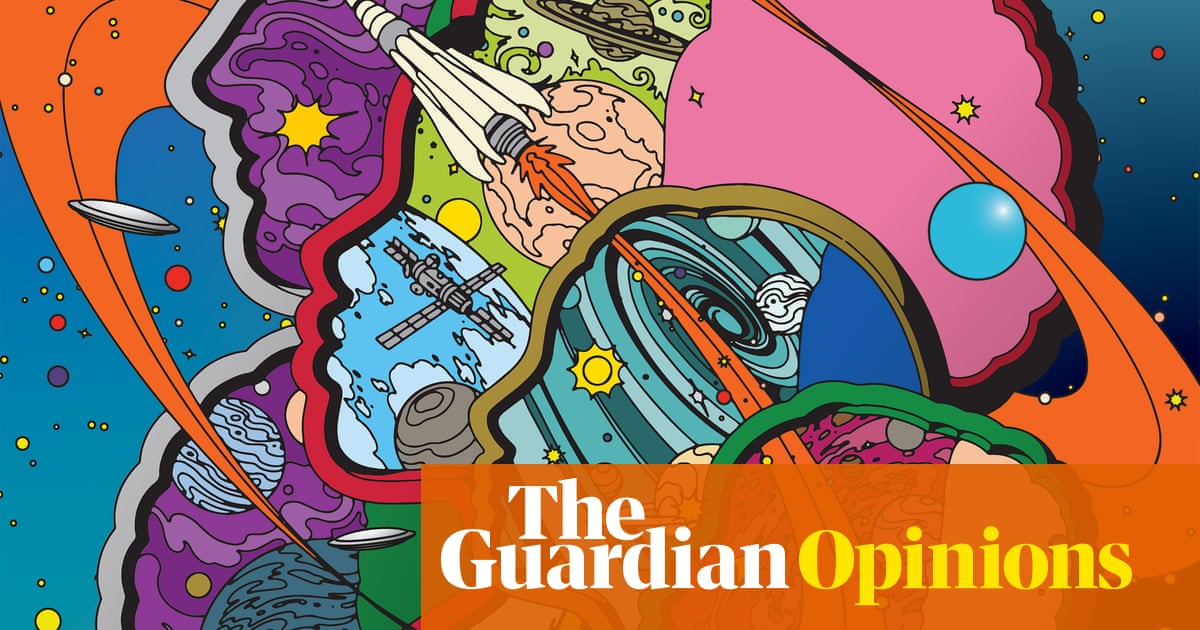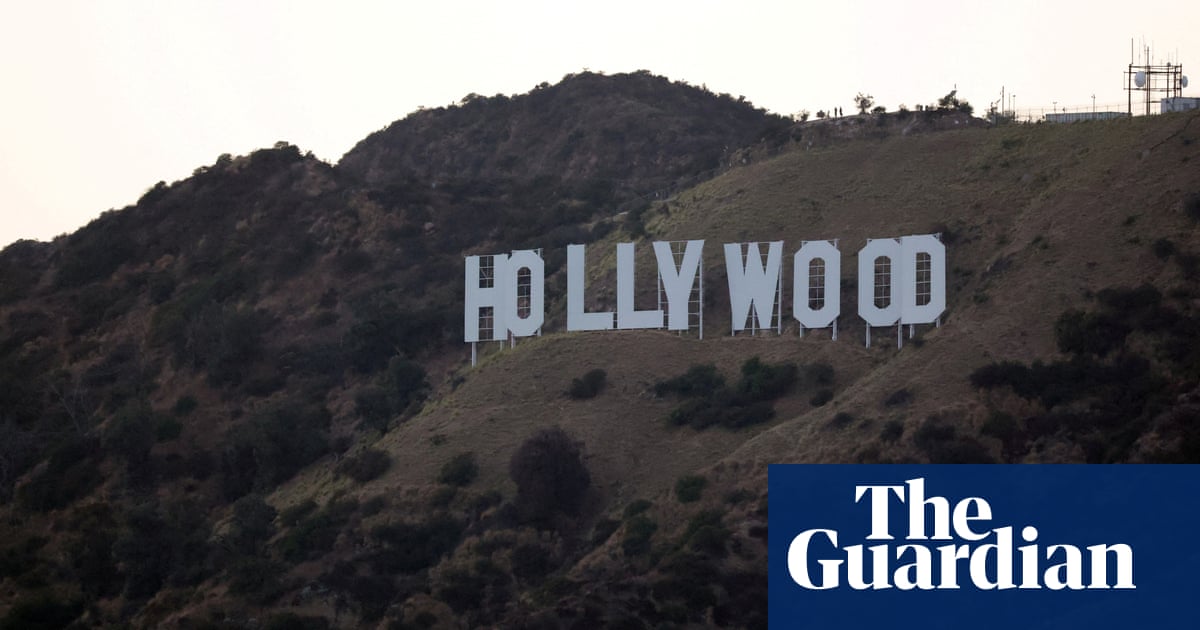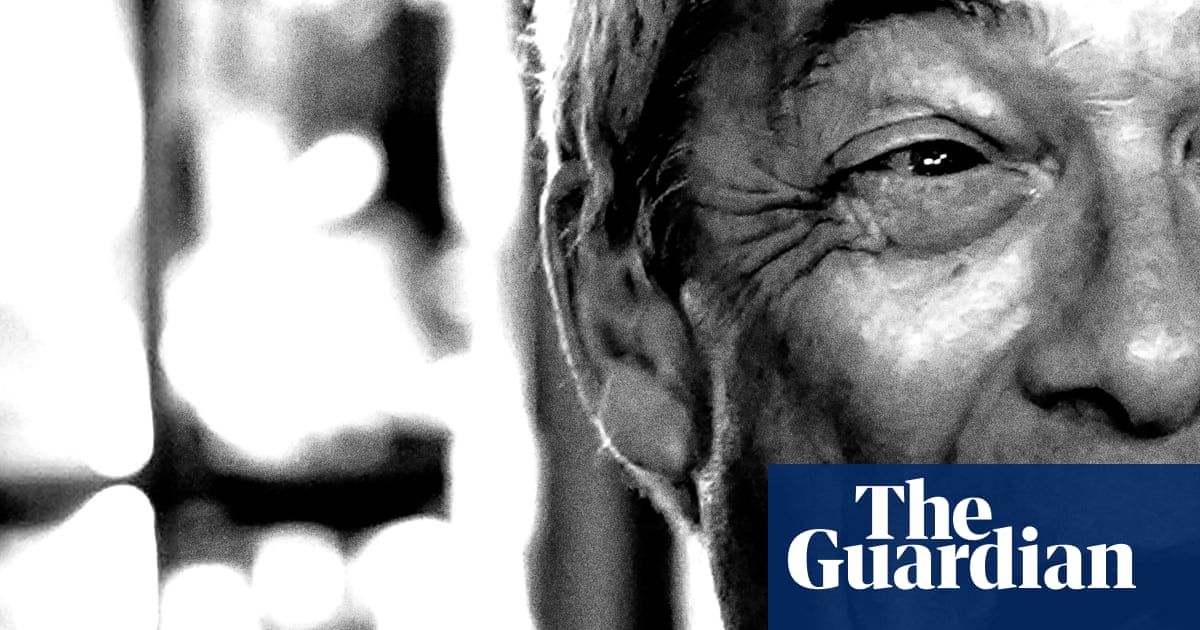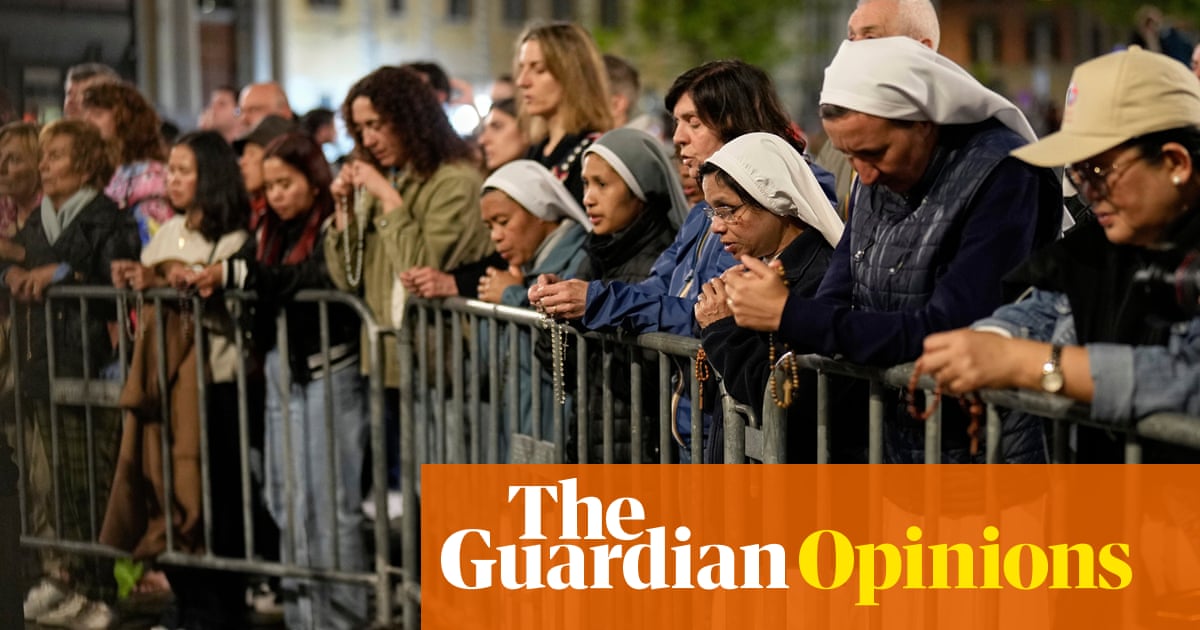A flurry of inflatable caveman clubs have erupted into the air, a crowd of ecstatic metallers swinging them merrily as they watch a hooded dinosaur peering over a synthesiser. The masked musician, Diplodocus, has transformed this crowded pub in soggy south London into a mystical underworld, one entrancing chord at a time.
This is Albion Dungeon fest, a sellout, weekend-long event, and the first of its kind in the UK. Emerging in the 90s as an offshoot of black metal, dungeon synth replaced guitars with keyboards to make it less moshing, more magic. Its mystical sound has aesthetics to match, channelling the atmosphere of JRR Tolkien books, the role-playing game Dungeons & Dragons and a darkly quaint reimagining of the medieval era.
Much like a wizard’s beard, the story of dungeon synth is long and tangled, and in a bid to unravel it, author Jordan Whiteman painstakingly investigated the genre. It resulted in Dark Dungeon Music: The Unlikely Story of Dungeon Synth, published earlier this year, which Whiteman is promoting at the festival. “This genre began in people’s bedrooms with a keyboard and a tape deck,” he says, “and that, for the first 10, 20 years, was what it was – it was never intended to become anything more”.
This fringe genre has fascinating origins, rooted in Norway’s black metal scene. Mortiis, real name Håvard Ellefsen, who gave a Q&A on his biography at the festival, is generally considered a pioneer. After leaving his band Emperor in the early 90s, he wove together black metal’s morbid sentiments, the facial prosthetics inspired by heavy metal rockers and imagery from fantasy novels to construct his own solo project, describing it as “dark dungeon music”.

The second figure credited with dungeon synth’s conception is the highly controversial musician Varg Vikernes. Vikernes, a neo-Nazi who was convicted in 1994 for the murder of a former bandmate among other crimes, created two ambient albums while behind bars under the moniker Burzum (meaning darkness in The Lord of the Rings’ evil Black Speech language). He was released in 2009 and has since been sentenced for inciting racial hatred.
Whiteman says nazism “and abhorrent ideologies” are unfortunately still a notable part of black metal’s legacy. “I’m grateful that the dungeon synth fans are largely hostile to ideology creeping into the music,” he says, noting that such views reject one of dungeon synth’s “primary tenets”, as it “breaks the whole escapist function of the music”.
Though its popularity hasn’t exactly exploded, Whiteman says he’s noticed dungeon synth events cropping up more frequently in his native US, with fans evidently drawn to its fantastical theatrics. At the festival, held at the New Cross Inn in south London, the German duo Depressive Silence – stalwarts of the 90s dungeon synth scene – wear dark cloaks while dramatically swinging metal incense burners to the imposing thump of drums. Others don chains or spiky leather armour, and you’re already familiar with the dinosaur.

UK-based act Atlantean Sword – who doesn’t give his real name – performs at the festival in his usual garb: a menacing skull helmet plus a huge sword. “Dungeon synth is still, at its core, ambient music, so the theatrics make it more engaging for the audience,” he says, adding that the music is intended to put the listener on a “hero’s journey”, providing them with a fantasy escape. “I’m trying to capture nostalgic feelings related to high fantasy films, books, video games and fantasy art, and incorporate those feelings into the music,” he says, naming Conan the Barbarian, Frank Frazetta paintings, Warhammer and the 1989 arcade game Golden Axe as sources of inspiration.
Atlantean Sword is relatively new on the scene – he released his debut album in late 2023 – but even he has seen the genre’s popularity “increase exponentially”, describing the festival’s sellout status as “mind-blowing” and a mention of the festival on Radio 1 as “wild”. But he maintains that a key element is “mystery and obscurity. Dungeon synth is, in its truest form, underground music. I’m not sure what will happen if the music is pulled too far out of the dungeon and into the harsh light of day.”
From my position in the crowd, the atmosphere feels too unique to become mainstream. I might be flanked by scary-looking metallers, but they’re disarmingly well-behaved; listening intently, reacting courteously. One man, so moved by the swelling synths, passionately reaches up, stretches his fingers skyward and tightly curls his hand into a fist, as if to clutch the sound waves tightly.

I catch up with one superfan, Cecil, who beams as he speaks. “Even though the community is very male-dominated and can look pretty intimidating, it is, by and large, really sweet,” he says. “If anything, you’ll find a dungeon synth crowd to be a little shy. We’re people who nerd out over alternative music and don’t always feel comfortable in mainstream culture.”
Meanwhile, for Cecil, the genre’s association with Vikernes is something to remain aware of. “I’ve not had any bad interactions personally. The people I’ve met are always welcoming, excited to share their music and their knowledge. But if you pay attention to what tattoos and patches some people have, it’s obvious those interactions are possible – especially if, like me, you’re a visibly queer person.”
For the vast majority, however, dungeon synth is a form of liberation – acting as, in Cecil’s words, “a shared fantasy space” where oddballs and misfits can find solace from the not-so-magical mainstream. “It might be a little cringe, but we’re all embracing that atmosphere of mysticism, possibility and nostalgia together,” he says. “It’s music that can take you to the depths of a cursed forest or make you feel like the hero of your own quest.” Putting forward something of a dungeon dweller’s manifesto, Cecil emphasises what lies at the genre’s core. That, in the face of an alienating modern world, all that’s left, he says, is to “reject society, escape to the dungeons!”

.png) 1 month ago
22
1 month ago
22













































